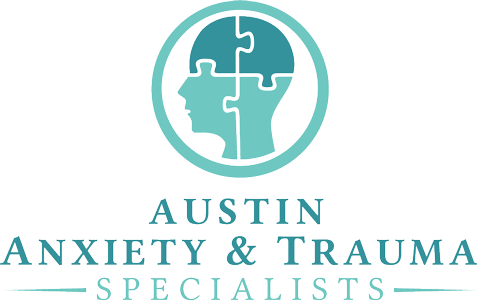The holiday season, with its sparkling lights and merry carols, is portrayed by default as a time of joy and celebration. Western society paints a picture of family gatherings, gift exchanges, and abundant feasting, setting a high bar for happiness and togetherness. Yet, beneath this glittering surface, many individuals grapple with an entirely different reality. Holidays can also be a time of intensified emotional struggle and exacerbate depression symptoms, whether a chronic battle or a seasonal occurrence.
As the calendar pages turn to this festive season, it’s crucial to acknowledge that for some, this period may not be the happiest time of the year. The contrast between societal expectations of holiday cheer and the personal experience of emotional pain can be stark and unsettling. Understanding this dichotomy is the first step in navigating the complex tides of emotion that the holidays can bring.
Read: 7 New Year’s Resolutions That Nourish Your Mental Health
Identifying holiday triggers
Before diving into specific triggers, it’s important to understand what we mean by ‘triggers’ in the context of mental health and the holiday season. In psychological terms, a trigger refers to something that sets off a memory or flashback, transporting an individual back to the event of their original trauma. However, in a broader sense, especially relating to depression during the holidays, a trigger can be any stimulus that brings about feelings of emotional distress or exacerbates existing mental health issues. These triggers can vary greatly from person to person and may include certain places, events, dates, or even sensory experiences like specific smells or sounds that are strongly associated with the holiday season.
Recognizing and understanding your personal triggers is a crucial step in managing holiday depression. It allows you to anticipate and prepare for potential emotional responses, and develop coping strategies to deal with them effectively. Here are some common triggers of holiday depression:
Social isolation. Despite the emphasis on social gatherings, the holidays can be a lonely time for many. Those without family nearby or with strained relationships may feel particularly isolated.
Family dynamics. Family gatherings, while joyous for some, can also be a source of stress and anxiety. Past traumas, unresolved conflicts, and the pressure of familial expectations can heighten emotional distress.
Financial stress. The commercialization of the holiday season often brings financial pressures. The expectation to purchase gifts, prepare lavish meals, and partake in various activities can lead to financial strain, exacerbating feelings of inadequacy and anxiety.
Overwhelming demands. The holidays can bring an onslaught of demands—parties, cooking, shopping, cleaning, entertaining, and more. This can be overwhelming, triggering feelings of inadequacy, stress, anxiety, and exhaustion.
Reduced daylight. The reduced daylight hours in winter can trigger a form of depression known as Seasonal Affective Disorder, affecting mood and energy levels.
Read: What Does “Triggered” Mean? 3 Trauma Myths Busted
Practical tips for holiday self-care
Self-care during the holiday season is about more than just indulging in festive treats or relaxing by the fire. It’s about actively taking steps to manage your mental health. Here are some practical tips:
Practice mindfulness. Practice being present in the moment. Mindfulness can help in grounding yourself amidst the holiday chaos, allowing you to find peace in the here and now.
Journal your feelings. Keeping a journal can be a therapeutic way to express and process emotions. Writing about your experiences and feelings can provide clarity and a sense of relief, even after a single session for some.
Set boundaries. It’s essential to recognize your limits and communicate them to others. Saying no to certain gatherings or choosing not to engage in stressful family dynamics can preserve your emotional energy. Practice with these example statements to safeguard your time boundaries.
Maintain your routines. Stick to your regular routines as much as possible. Consistency in your daily habits, sleep, eating, and exercise can provide a sense of stability and normalcy and enable you to use healthy coping tools that manage depression symptoms.
These self-care strategies are not just about coping with the season; they’re about empowering yourself to navigate it in a way that prioritizes your mental wellbeing.
Read: 6 Tips to Manage Holiday Stress
Managing depression with therapy
While self-care strategies are vital, professional therapy plays a crucial role in managing depression. Therapies like Cognitive-Behavioral Therapy (CBT), Eye Movement Desensitization and Reprocessing (EMDR), and Rational Emotive Behavior Therapy (REBT) offer structured approaches to tackle depression. These therapies can help in understanding and changing negative thought patterns, processing traumatic memories, and developing healthier emotional responses.
Deciding to pursue therapy is a personal choice and one that can be influenced by many different factors. Everyone’s journey towards mental health is unique, and the decision to seek therapy is a deeply individual one. You may feel ready to take this step now, or are considering it for the future. But therapy is here to support you when you are ready to accelerate your journey towards healing.
Read: Battle Depression with the Hero’s Journey
The holiday season can get better
As we navigate complex emotions of the holiday season, it’s important to remember that seeking help is not only okay, but it’s also a courageous and positive step towards better mental health, and even a better life. If you find yourself struggling to manage feelings of depression, know that you’re not alone and support is available.
At Austin Anxiety and Trauma Specialists, we understand the unique challenges of the holiday season. Our team of experienced therapists is here to support you through this time and beyond with compassion and expertise. Whether you’re dealing with chronic depression or facing seasonal emotional challenges, we’re here to help you find balance and peace.
Book your first session with us and work towards not just surviving the holiday season, but finding joy and fulfillment in it. It can get better. We can help.






